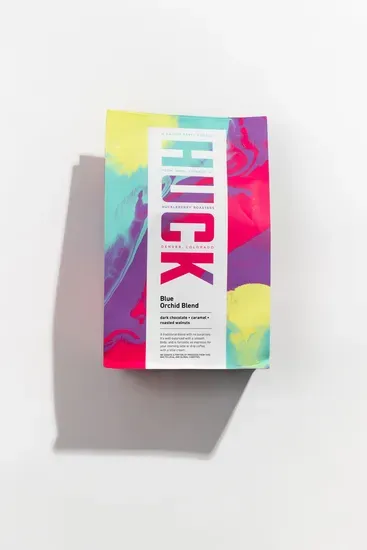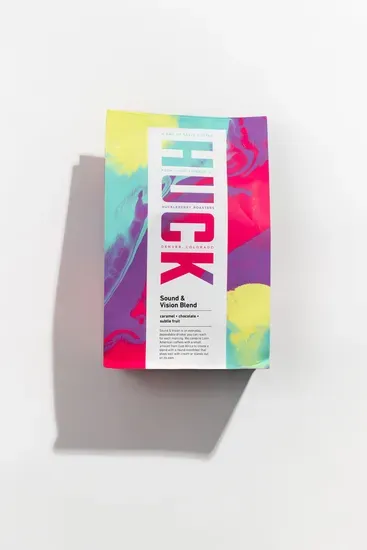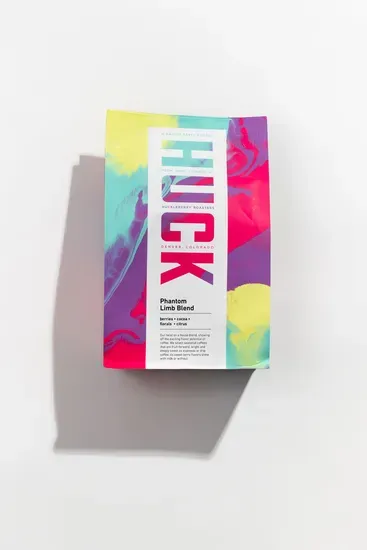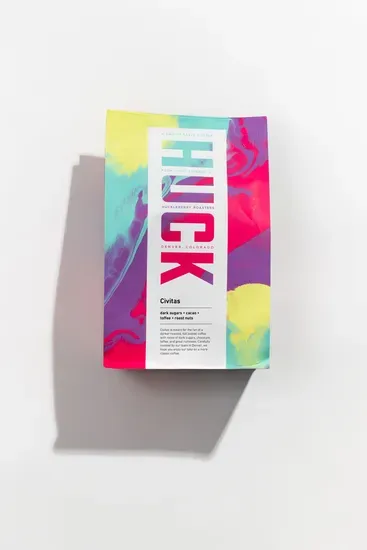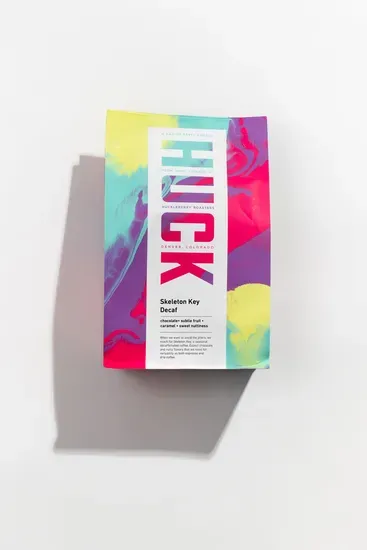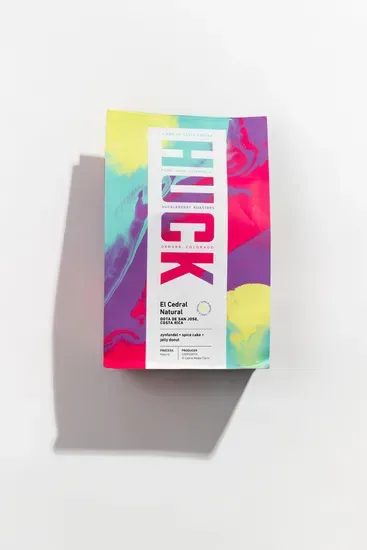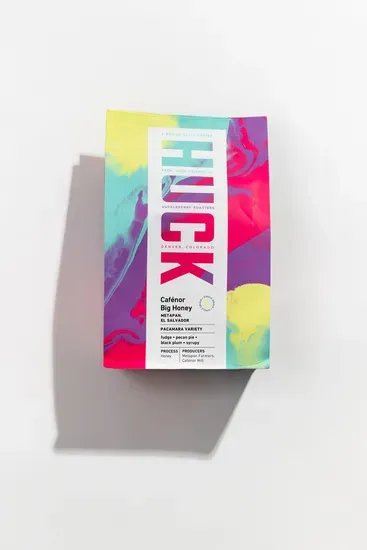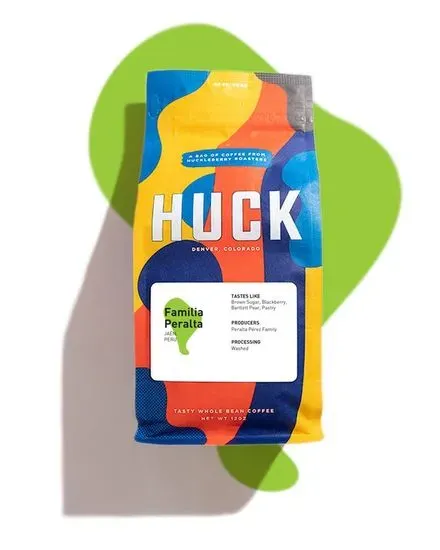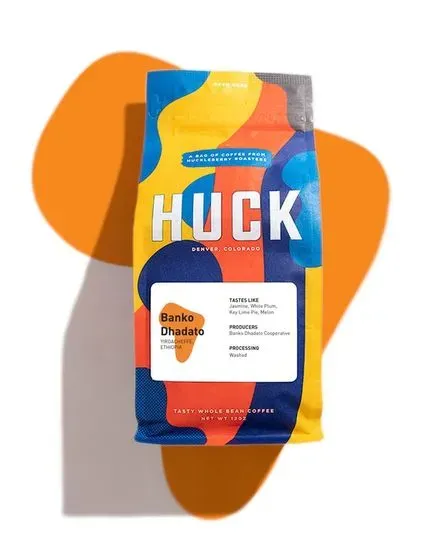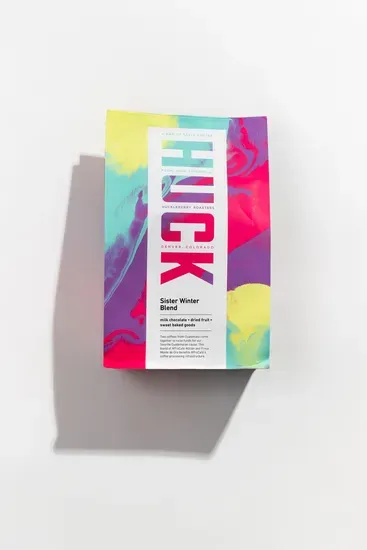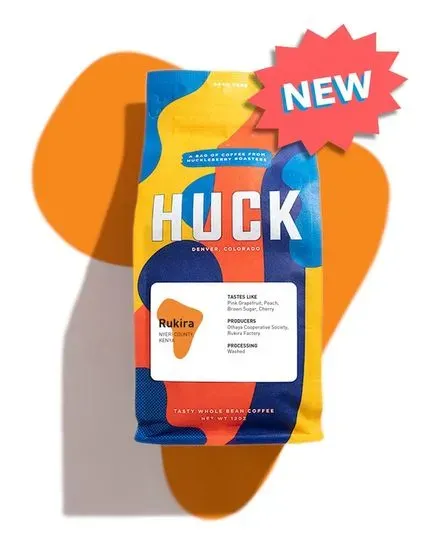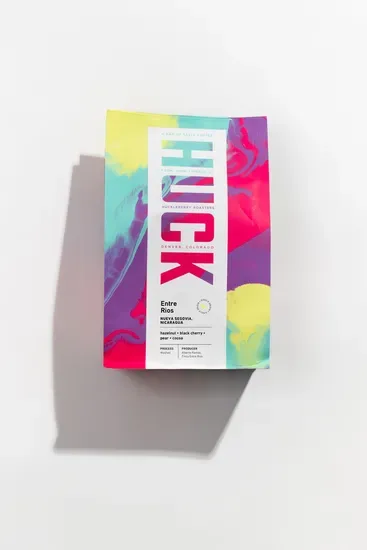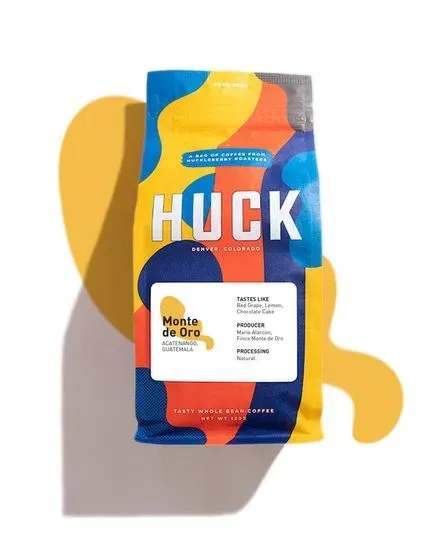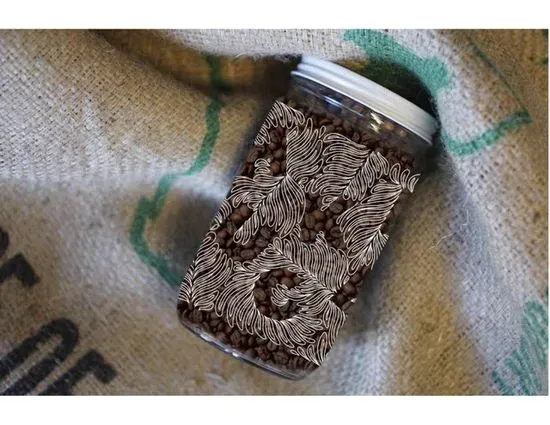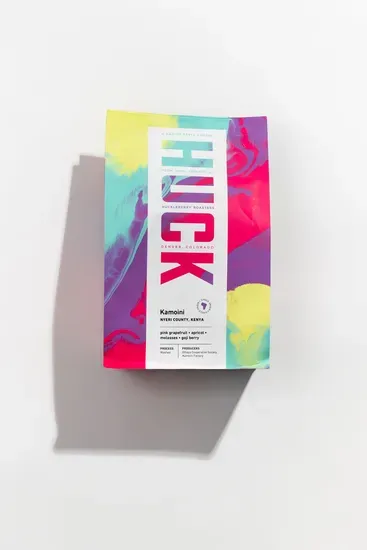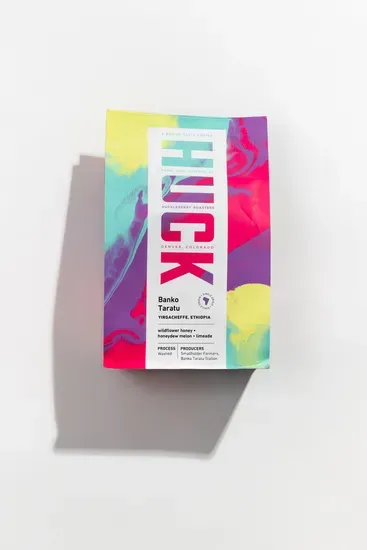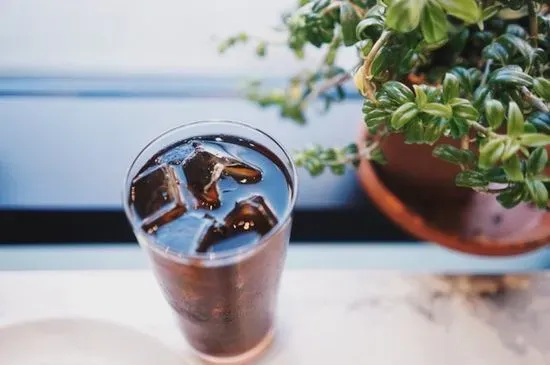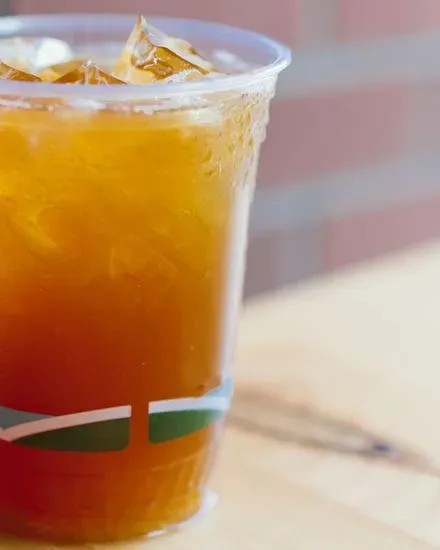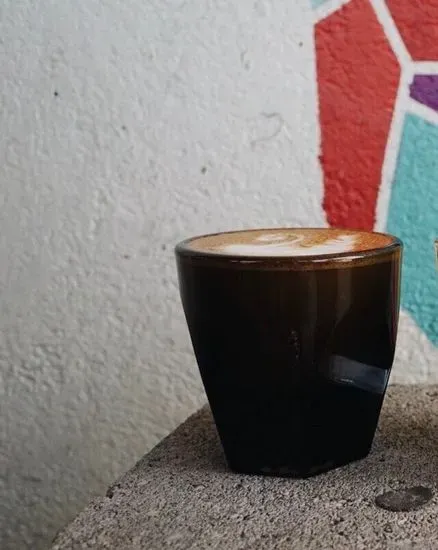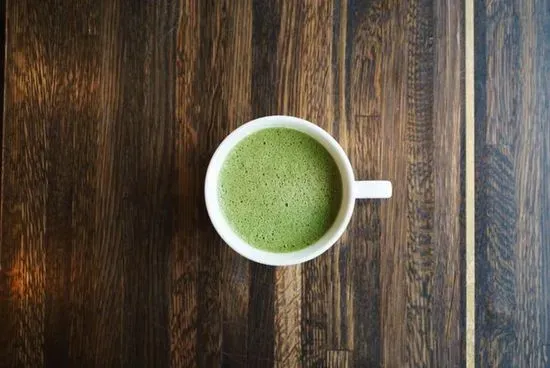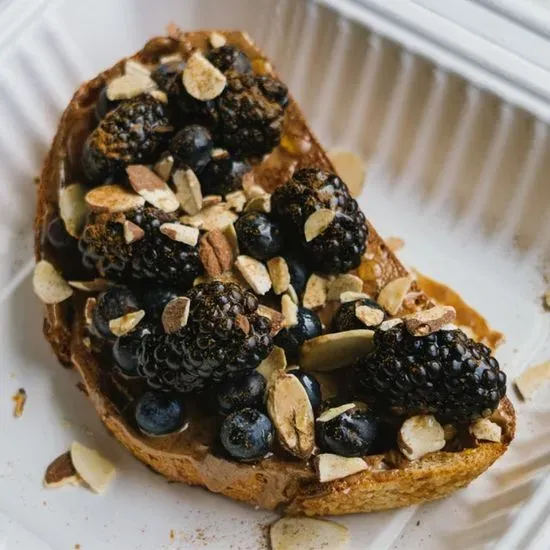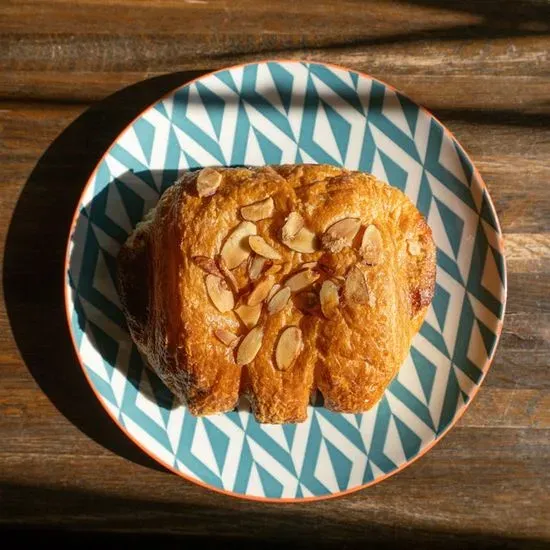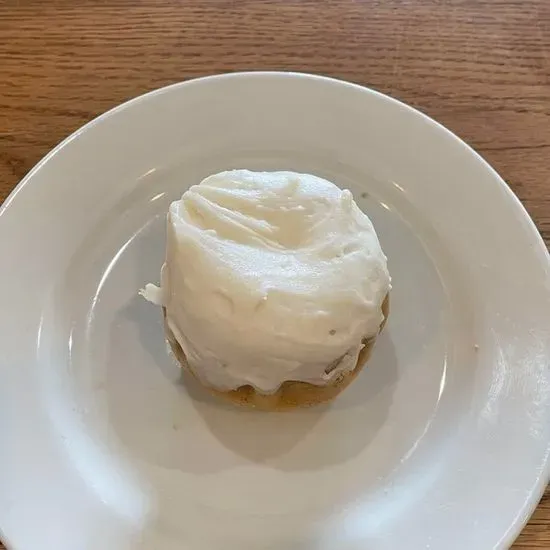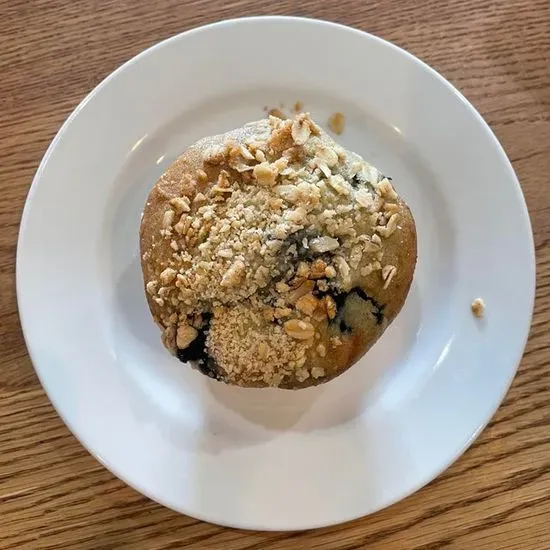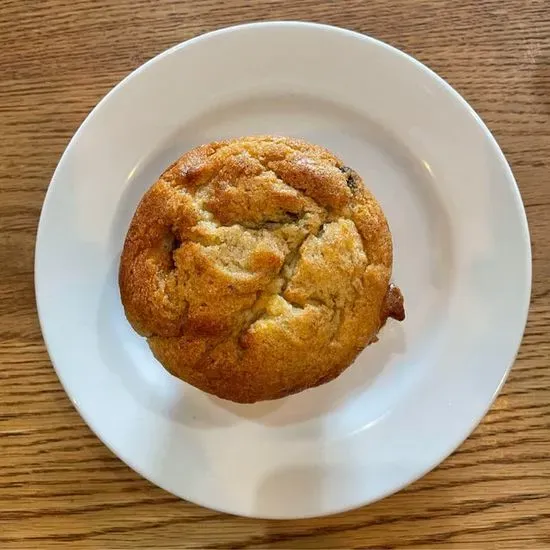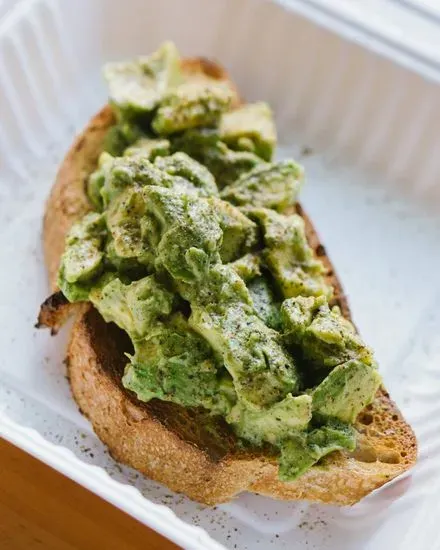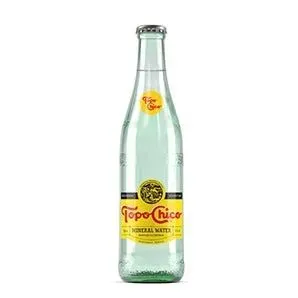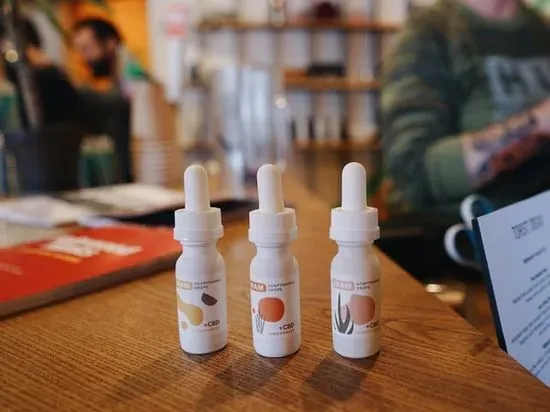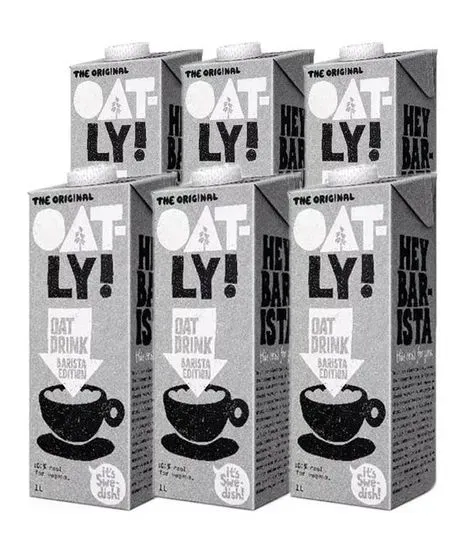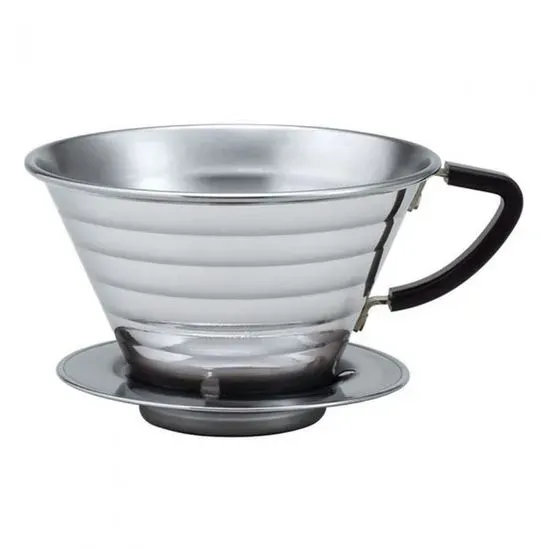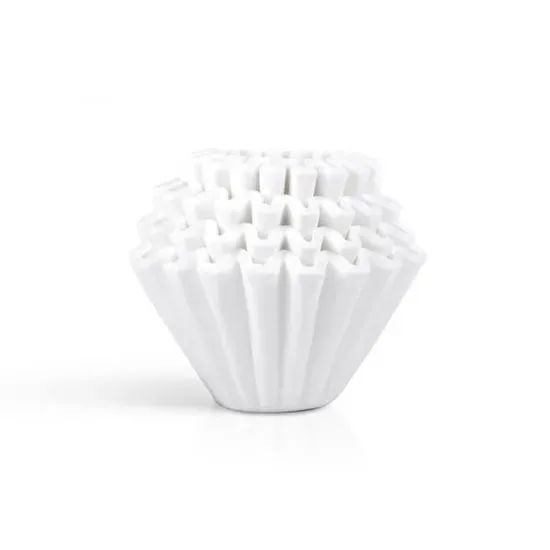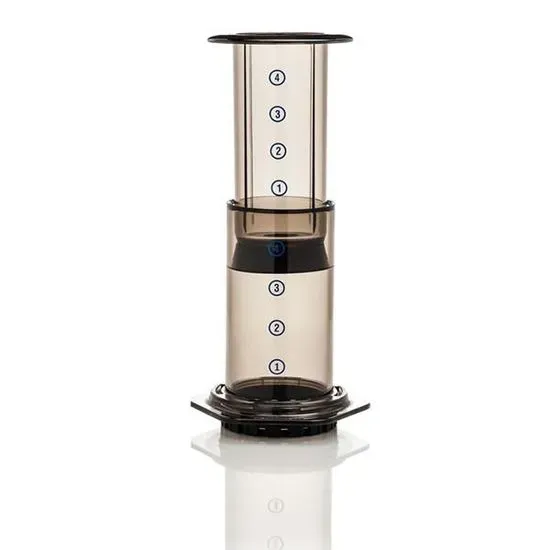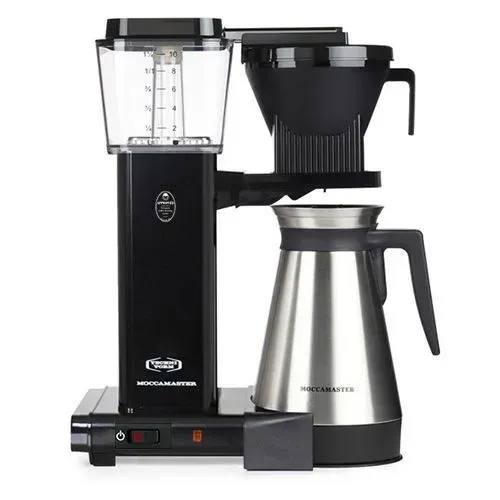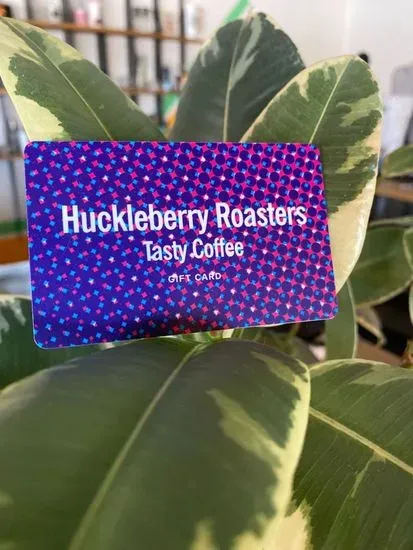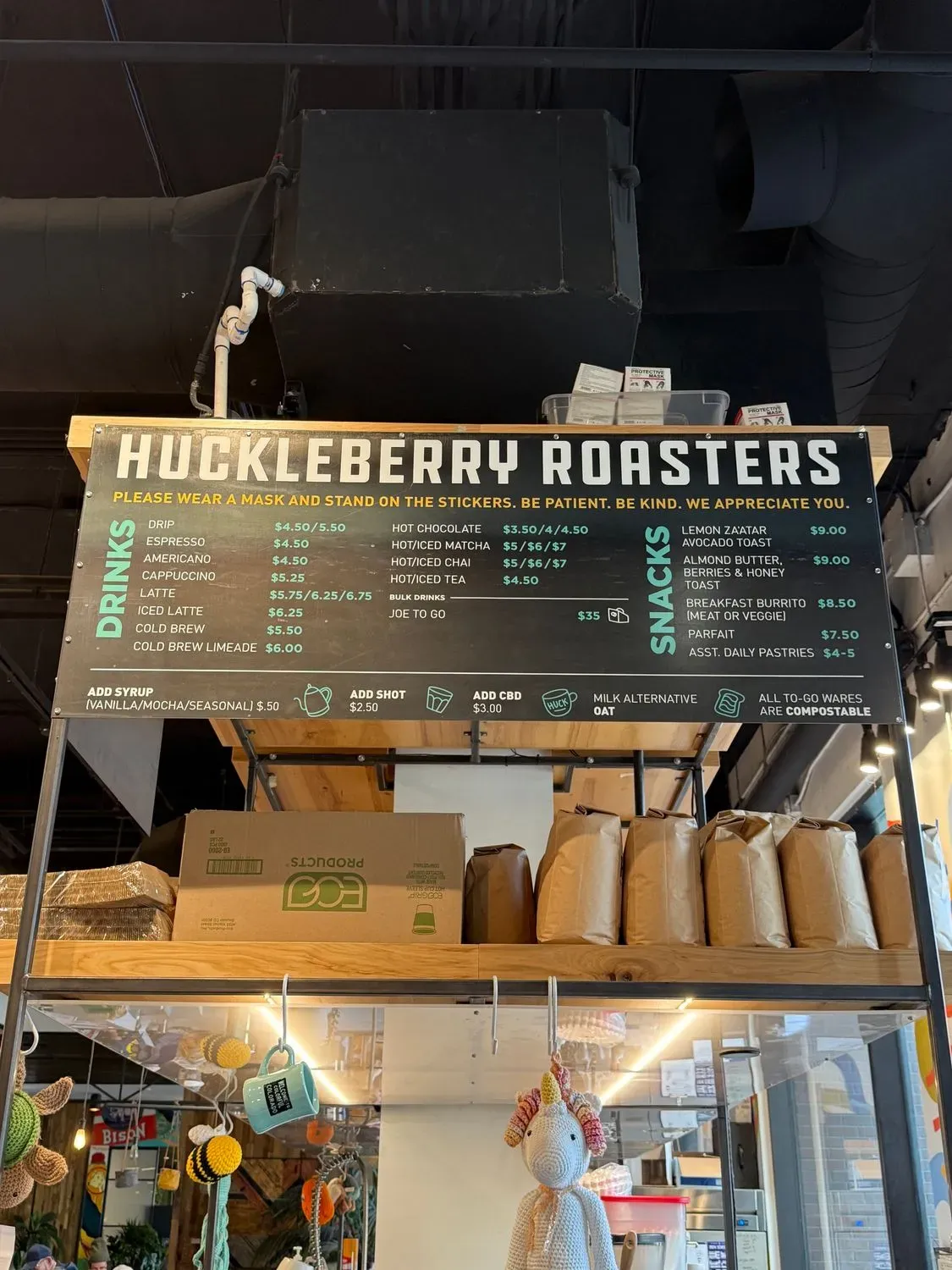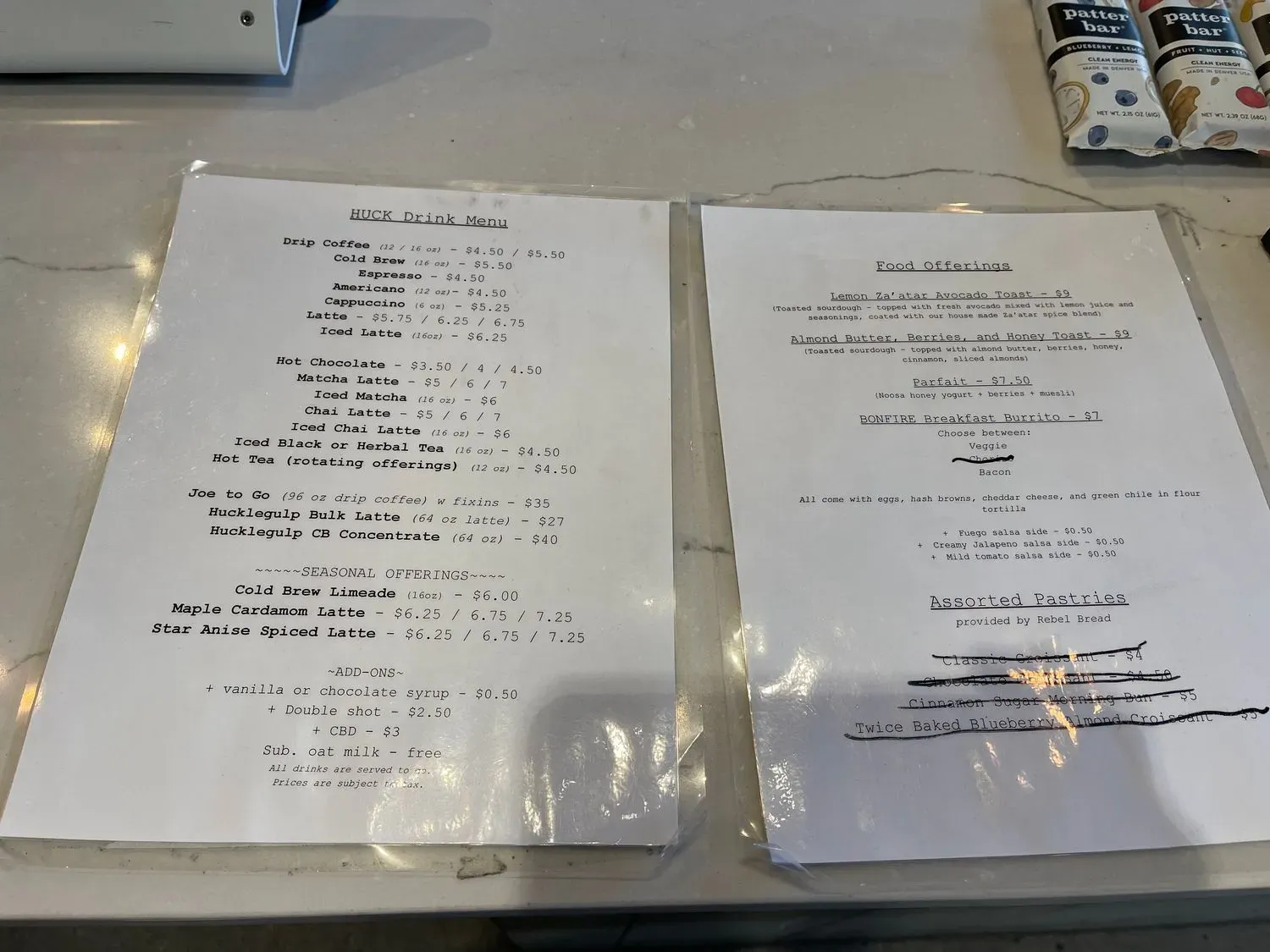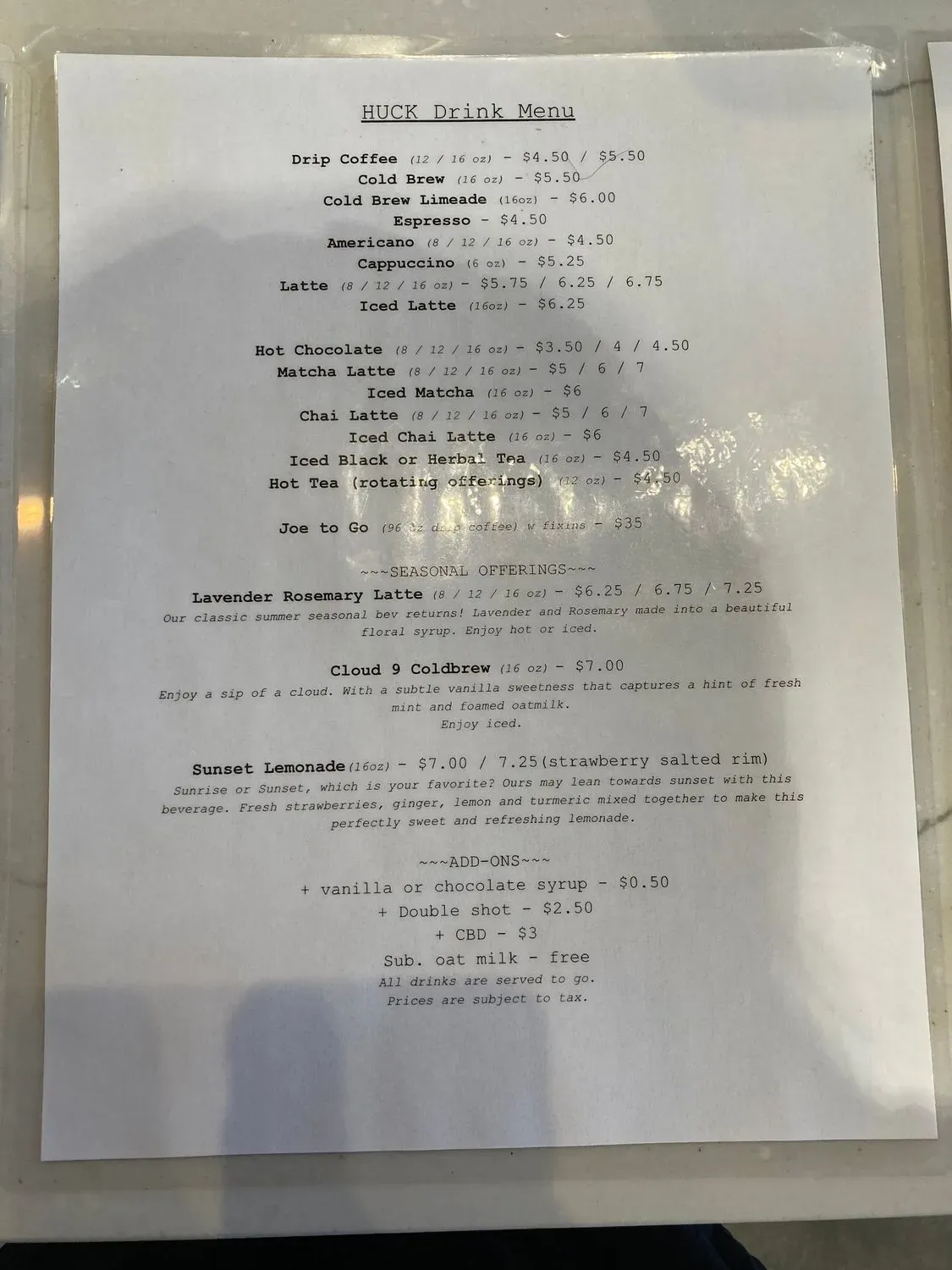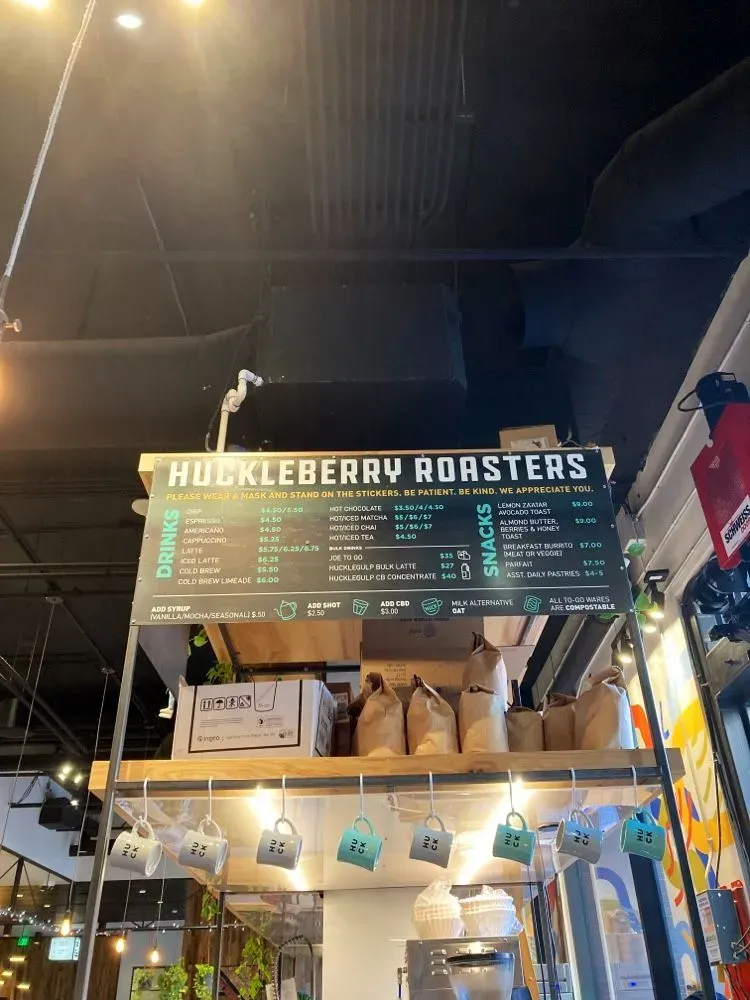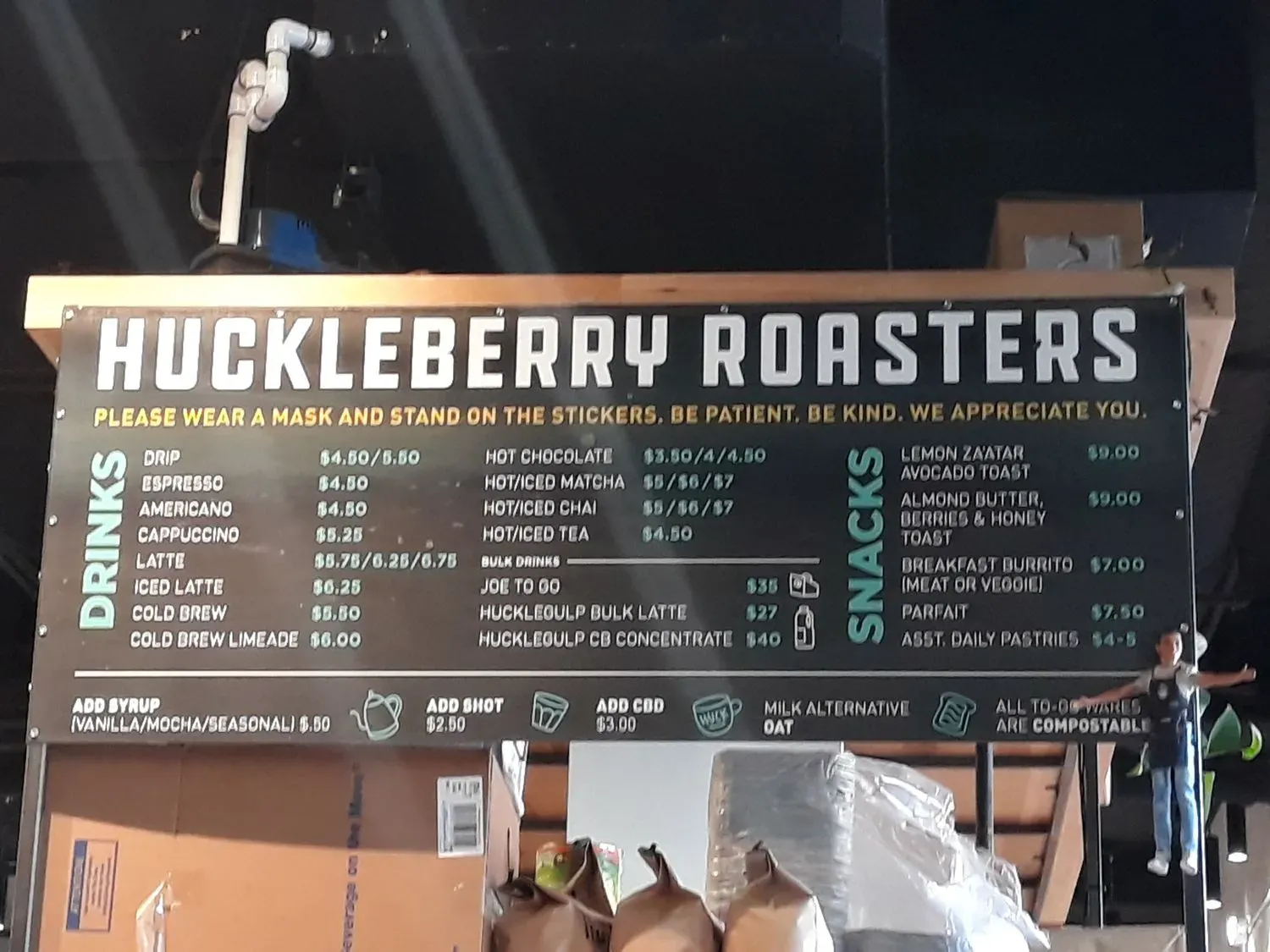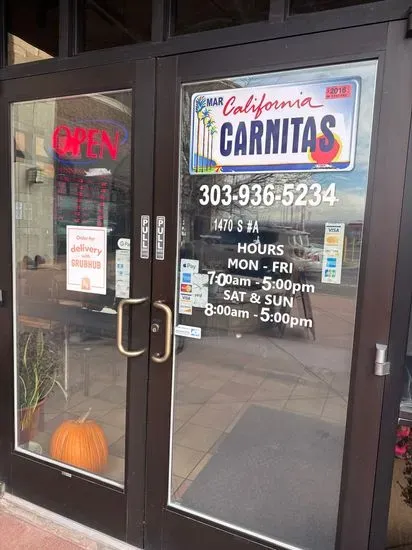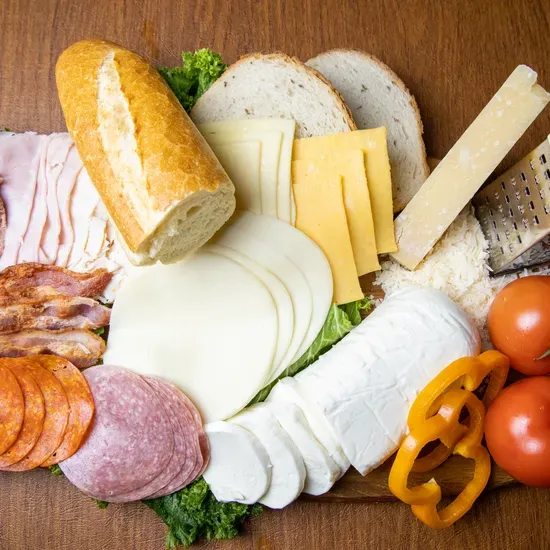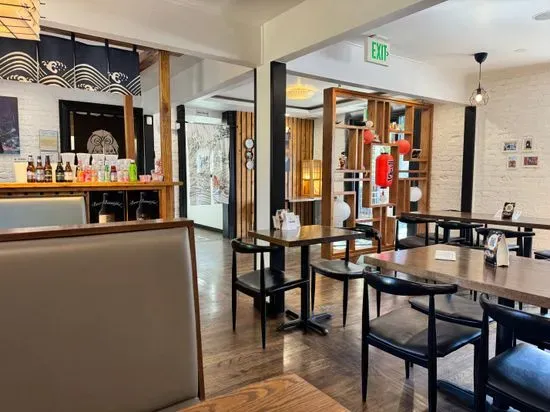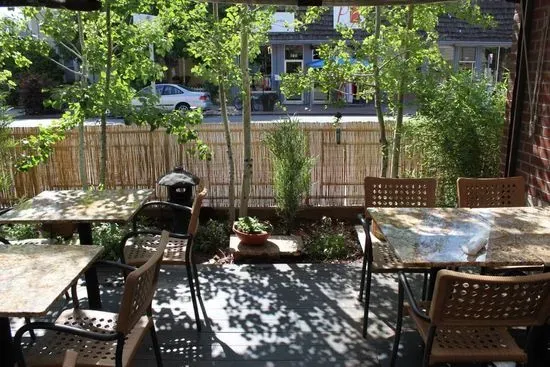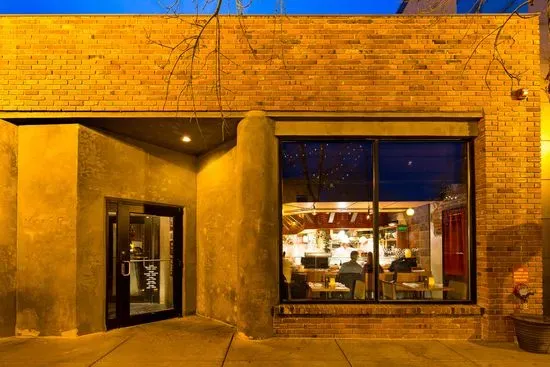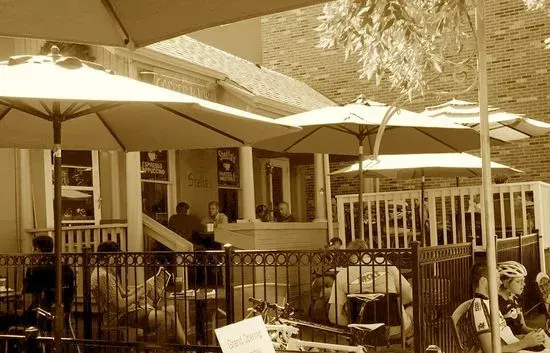Search
Bags of Coffee
- Blue Orchid BlendBlue Orchid is Huckleberry’s house espresso blend. We serve this coffee every day in our cafes, and it is designed to be approachable, both as espresso and as a brewed coffee, with and without milk. If you’ve ever had a great latte experience at one$18.00
- Sound And Vision, BlendWho doesn’t like David Bowie? We like David Bowie. We also love drip coffee, and while we’ll always remain passionate about interesting, unique, and seasonal single origins, we also recognize that some folks, some restaurants, and some cafes a$18.50
- Phantom Limb BlendPhantom Limb is the wilder of Huckleberry’s two blends. We designed the Phantom Limb to focus on fruit-forward flavors that one might not expect from a traditional espresso or drip blend. We love East African coffee, and for Phantom Limb, combined th$20.00
- Civitas, BlendDon't call it a dark roast! Okay, okay...we won't. How about we call it Civitas and say it's "a slightly darker roast with slightly longer development"? Yea, that sounds cool! In either case, we're excited abou$18.00
- Skeleton Key DecafWe love coffee for a lot of reasons. We love the flavors of a cup that's been sourced, roasted, and brewed with care, and we love sitting down with friends and a few mugs. Most of the time, we love that subtle kick of caffeine, too. Somet$19.00
- El Cedral Natural, Costa RicaMmmm...jelly donuts. That's what we think when we taste El Cedral, and we’re hyped to have it back in the lineup.El Cedral is back for its sixth season as a top natural processed coffee from Central America, and comes our way from the Cooperativa de Caficultores de Dota, or CoopeDota for short. We've had the pleasure of visiting these growers twice over the past few years, and are continually impressed by both the coffee and the cooperative's commitment to the environment. CoopeDota is a leader in Costa Rica's push for sustainable coffee, and was the first carbon-neutral coffee producer on the planet--achieving this by both sustainable practices and purchasing carbon certificates. While most cooperative-produced coffees come from multiple farms, El Cedral is an outlier. This is a single plot, collectively owned by all of CoopeDota, that operates as an experimental model farm to help individual farmers learn better growing and processing practices. It's among the higher plots of land in the area, and the naturally-processed coffees have been clean, sweet, and jammy year after year.If you've loved Huck’s naturals, we'd suggest brewing up a bit of this gem. El Cedral's got the berry flavors we've come to expect from the best African naturals, a touch of winey funk, plus some of the richer creaminess we love in some of our more approachable coffees. We're calling that combo of flavors jelly donut, spice cake, sweet zinfandel, and generally delicious.$21.00
- Don Manuel, GuatemalaDon Manuel makes his triumphant return as our final Aprocafé microlot this year!The AProCafé Atitlán growers association, based in the Lake Atitlán region of Guatemala, is arguably Huck’s strongest (and second longest) sourcing relationship. These growers produce our Atitlán El Grano coffee, which we love dearly, but we've also been working on some other projects with the cooperative so that we can grow together. Each year we use our Sister Winter holiday blend to raise funds for various infrastructure projects at the association, and this is our eighth year highlighting exceptional single farm microlots. Don Manuel Tzic Saso has made the cut more often than any other farmer in the group - 8 times so far! Like all of the farmers in AProCafé, Don Manuel has great terrain and altitude for coffee growing, plants his coffee trees under shade, and farms using organic, sustainable practices. Manuel is impressively detail-obsessed, able to point out each species of shade tree on his farm, tell you when he last pruned every parcel of his land, and he clearly takes joy in sweating the small details that breed quality. With wild hair that reminds us of a Guatemalan version of Christopher Lloyd in Back to the Future and a hilarious sense of humor, he’s also one of our favorite farmers to visit.Manuel lives a bit too far away from AproCafe's central wet mill in Cerro de Oro, so in the past, he’s washed and dried his own coffee. While this is still true to some extent, in recent years, Aprocafé built a small wet mill just up the road from Manuel’s house. At this point Manuel depulps his coffee on Aprocafé’s more efficient equipment, then brings the coffee back home for fermentation, washing, and drying, with raised beds set up on the roof of his new house.Don Manuel's coffee is both approachable and complex, with both crowd-pleasing, milk-friendly sweetness and more adventurous fruit notes. We're tasting apple pie, a mix of green and red grapes, and chocolate wafer cookie in his 8th run in our lineup, to close out Aprocafé coffees for the season!$22.00
- Cafenor Big Honey, El SalvadorPacamara coffee beans are huge, and these Pacamara beans are honey-processed. Hence, big honey. Breaking that down a bit more, in the honey process, coffee producers depulp the skin off of the coffee seed, but leave some or most of the sticky inner fruit (honey) on the bean for drying. It splits the difference between natural process (beans dried in the cherry) and washed process (all the fruit removed and washed off before drying), and when done well, honey-processed coffees can exhibit some of the best qualities of both. Fruity, but not as intense as a natural, and clean like a washed process, but often with a touch more body. And Pacamara is a variety of arabica coffee. It’s a cross between Pacas, a more standard-size (and traditional-tasting) variety common in El Salvador, and Maragogype, the original “elephant bean” and a natural mutation found in Brazil in the 1870s. Pacamara has great flavor potential, but can be a bit tricky to roast. The beans are bigger, and often a touch less dense, and this affects the thermodynamics of roasting in a way that we’re not qualified to explain, and would take way to long for a coffee bio. Anywho, we like this coffee, and the folks behind it. We're in our third season soucring coffee from Cafénor, a group of farmers and mill in Northwestern El Salvador Cafénor is a socially-minded private wet and dry mill that aims to produce coffee as ecologically as possible. Founded by Alejandro Valiente and operated by Alejandro and his daughter Valeria, the mill itself, where Cafénor processes coffee cherry or purchases fully-dried coffee from nearby producers and prepares it for export, is carbon-negative. This Pacamara was grown by several farmers in Metapan, and processed by Alejandro and the team at Cafénor. While our washed lot from the group, Productores Cafénor, is also great, Big Honey is, well, bigger. We’re tasting fudge, pecan pie, and black plum, with syrupy mouthfeel and sweetness as big as the beans themselves.$22.00
- Familia Peralta, PeruPeru is one of the most promising coffee producing countries in the world right now, with both loads of quality and tons of untapped potential. With the world’s second highest mountain range running North-South through the country, Peru has the altitude to continue producing great coffee in the face of global warming, the country has largely embraced organic farming practices, and as the coffee industry works to single out small farmers from the country’s tradition for large, regional lots, we’re tasting some true gems. This is year 4 for us showcasing the Peralta family's delicious coffee.Mavila Peralta spearheads coffee processing on her family's plot, but also incorporates coffees from her brother's and mother's adjoining plots, and their coffee is a dependable balance of approachable, milk-friendly flavors and complimentary fruit. We’re tasting brown sugar, blackberry, pear, nougat, and pastry in our mugs. The fruit’s a bit more pronounced than in years past, but traditional sweetness is still the star of the show.. We’re excited to work towards the future with the Peraltas and the other farmers in the larger Origin Coffee Lab network. Origin is an exporter dedicated to transparency, farmer assistance, fair pricing, and full traceability, and we roast coffees from their network throughout our lineup, from microlots like this from the Peraltas, to community and cooperative blends in Blue Orchid, Sound and Vision, and Civitas. While great farm location, varieties, and farm practices are undeniably a huge factor, there’s always some level of chance when it comes to microlot-quality coffee. So it’s important to us to not just cherry-pick from the top, but also support growers at a level that’s a bit more attainable without the fortune of good luck. This is our ideal purchase model, and close to what we strive for in other origins like Guatemala: commit to buying coffee from a group of farmers at a level they can consistently attain, and showcase the gems. Familia Peralta is sweet and approachable, but juicy and complex enough to keep things interesting, and it's great to have this everyday drinker back for another year at Huck.$21.00
- Banko Dhadato, EthiopiaBright, floral, complex and full of stone fruit + melon flavors, the Yirgacheffe Cooperative Union delivers another dope washed Ethiopia to the Huck roastery!Banko Dhadato is one of the 22 cooperatives that make up the Yirgacheffe Coffee Farmers Cooperative Union, and while we’ve traditionally focused on the Aramo Cooperative, this year Banko Dhadato was just too good to ignore. YCFCU is a longstanding leader in organic farming and sustainable agriculture in Ethiopia, and while Huck roasts coffees from both private washing stations and cooperatives, we’re always happy to support YCFCU. The Banko Dhadato Cooperative sits in the southern portion of the greater Yirgacheffe coffee region, closer to Gedeb woreda than Yirgacheffe town itself. Like the Aramo cooperative we’ve roasted in the past, Banko Dhadato sits to the east, high up on the ridge dividing the Yirgacheffe and Guji regions, and we’ve found ourselves consistently gravitating to these higher, eastward Yirgs, be they from the Yirgacheffe Union or private washing stations like Worka Chelbesa and Danche.We’re tasting jasmine + honeysuckle florals, white plum, melon, and creamy-bright key lime pie in this first Huck lot from Banko Dhadato Cooperative, and we’re stoked to showcase this coffee as our final washed Ethiopia of the 2023 harvest!$22.00
- Majoo Natural, EthiopiaNew name, but kinda a returning fave!Majoo Natural is a spin on a coffee we’ve loved over the past few years, from Sookoo Coffee and the Raro Nansebo washing station in Guji! We’ve been roasting delicious naturals from Raro Nansebo for several seasons now, and some years, we get the chance to try some community-specific coffees. This year, we loved the coffee from farmers in the small village of Majoo! Over the past several years, Sookoo Coffee has gained well-earned notoriety for producing some of Ethiopia's best naturals. Sookoo means gold in the Guji region's Afaan Oromo language, and Sookoo Coffee focuses on naturals in the Guji region. While Sookoo did produce its first washed coffees this most recent harvest, the main focus remains on naturals: coffee dried in its fruit. And that focus pays off.Raro Nansebo is Sookoo's second station, and we've been roasting its coffee since the 2019-2020 harvest. After making a name for themselves with the Odo Shakisso station a bit further west in Guji, Sookoo expanded into the Guji Uraga area, building the Raro Nansebo station and working with smallholder farmers in the surrounding area. After roasting a community-specific lot from Dooddissi a few years ago, this is our second chance to roast the goods from an individual village, Majoo.Big fruit is the big draw in most naturals, and the florality we love in washed Ethiopias often gets masked by the berries. In the best cases though - which seems to be the norm for Raro Nansebo - floral aromatics get to join the fruit punch. This year we're tasting blackberry, heady florals, sugar cookie, and touch of lime and honeydew melon to join the Majoo berry party.$23.00
- Sister Winter BlendEach year when the temperatures start to dip and we see snow in the mountains, Huckleberry celebrates with our Sister Winter blend. Among other things, winter is a time for gathering with friends and family, sharing good food and warm drinks.We want to help you serve up something that pleases the whole crowd, from the more traditional coffee drinkers who love milk and sugar to your 22 year old cousin who's a bigger coffee nerd than you are. And of course, since we're dealing with family, it's pretty important to us that each year, Sister Winter pairs well with fireside chatter and some sort of spiking ingredient, should that help you put up with a particular uncle or in-law. The holidays are also about giving for us, and each year, a portion of the proceeds from Sister Winter benefits a cause we care about. For the sixth year in a row, Sister Winter sales will help the AProCafé Growers Association in various projects. Over the past few years the group has used funds to combat coffee leaf rust, a coffee disease that has wreaked havoc on Central American coffee farms for the last several years, improve drying infrastructure, buy tools for farmers, and finish a micromill closer to some of the association's farms. Fittingly, our holiday blend is all Aprocafé. We paired washed and natural coffees from the group, forming like Voltron to create a full, bodied, rich, and crowd-pleasing blend. We're tasting dark chocolate, mixed berries and sweet baked goods in this year's Sister.Good coffee, helping good people continue to make a life growing good coffee.$21.00
- Rukira, KenyaThere’s nothing like a great Kenyan coffee - intense brightness and fruit, juicy mouthfeel, and big sweetness in a combination that’s pretty much impossible to find anywhere else. Rukira - our second Kenya of the 2022 harvest, is exactly what we’re looking for from this unique origin.Rukira is one of 17 factories (Kenya-speak for washing station) in the larger Othaya Farmers Cooperative Society, and while this is our first time roasting Rukira, we look to the Othaya Cooperative for at least one banger coffee each year. We’re lucky to taste lots from throughout the cooperative, and this year, Ichamama Natural and this delicious washed lot from Rukira were the standouts.Additionally, the vast majority of our Kenyan coffees come to us through the Kenyan Cooperative Coffee Exporters (KCCE) network. The Kenyan coffee industry tends to be dominated by a few foreign-owned businesses, and KCCE is a collective of cooperative societies that market and export their coffee together, to keep a bit more of the benefits within Kenya. We enjoy working with KCCE, and we can count on some amazing coffee each year.Admittedly, Kenyan coffee can be a bit polarizing, especially if you’re adding milk or alt milk into the equation. The intense acidity of the coffee doesn’t pair well with the milk for all taste buds, and while combo might work great for you, our usual recommendations for cream tend to come from Latin America. We’re not saying don’t try it, just that it’s not the safest path. But if you drink that coffee straight and want to get those taste buds watering, Kenya Rukira FTW.We’re tasting bright pink grapefruit, brown sugar, a stone fruit one-two punch of peach and cherry juice. It’s our second washed Kenya for this season, and it’s big, bright, juicy, and complex, just the way we like it.$21.00
- Entre Rios, NicaraguaIt's been a couple years, but Alberto Ramos and his farm, Finca Entre Rios, make their return to Huck! We weren't able to buy Alberto's coffee last season, but this year our friend Alejandro - of CaféNor in El Salvador - helped us reconnect! Alberto named his farm Finca Entre Rios, because it sits between the San Francisco, San Isidro, and Margaritozo rivers. He's been farming his father's farm since his teens, but purchased his own land in 2007. Nicaragua is kinda a weird origin, where it's common practice to wash coffee on-farm, then deliver wet coffee to a central drying facility. In most other countries, it's more common to deliver coffee in cherry on the day of picking, or fully washed and dried. Cherry or dried parchment tends to be a bit easier to control, and in many Nicaraguan drying facilities/purchasing stations, there's a big risk that coffee will sit wet too long before drying, developing defects. Puma Coffees, a relatively new company formed by Manuel Rosales, handles the drying and logistics, making it possible to roast Alberto's tasty goods again. Alberto's coffee packs plenty of traditional flavors, but also has some lovely fruit in the cup. We're tasting milk-friendly hazelnut and pie crust, with just enough stone fruit and mandarin orange to make this everyday drinker a bit more interesting.$20.00
- Monte de Oro, GuatemalaMonte de Oro is back with the sweetness, adding a punch of natural-process fruitiness to our Central American coffees.Finca Monte de Oro is Huck's other Guatemala sourcing relationship, and while we do put a lot of focus on the AProCafé Association, there's no shortage of other great coffee in the country. We started sourcing coffee from Mario 7 years ago after being introduced by a mutual friend, and from day one his innovative approach to processing has set his coffees apart.Mario has traditionally produced both honey-processed and natural coffees, and until two years ago, we had always roasted either the honey process or a blend of natural and honey together. Over the past couple years though, due to some weird climatic variances towards the end of the 2022 harvest period,and the fact that honeys are just very labor-intensive, the farm has decided to focus its efforts on the full natural process. The coffee’s delicious, and we’re on board. A big shoutout to Mario for experimenting and sharing knowledge with us on his farm. Mario and his team at Monte de Oro sweat all the details when it comes to picking, fermenting, and drying his coffee, and they’ve been happy to share the details with us. We in turn have shared some of that knowledge with other partners like AProCafé, so Mario’s coffee isn’t just excellent, but it helps create a rising tide for all the coffee we buy and roast from Guatemala. 2023 Monte de Oro is big, sweet, fruity, and balanced, all at the same time. We’re tasting jammy red grape, citrus, and chocolate cake in this year's crop, and are stoked to have the goods from Mario back at our roastery!$21.00
- Coffee Club Jar & StickerJoin our Coffee Club! One Jar and sticker will get you 6 fills of coffee (or 6 bags in the meantime where we are trying to be extra clean) and 3 drip coffees. You can snag replacement stickers once you go through your first one. Just bring your sticker in and we'll cross off a fill and get beans into your hands to keep you nice and caffeinated.Jar & Sticker$100.00New Sticker Only$90.00
- Kamoini, KenyaThere’s nothing like a great Kenyan coffee - intense brightness and fruit, juicy mouthfeel, and big sweetness in a combination that’s pretty much impossible to find anywhere else. Kamoini - our first washed Kenya of the 2024 harvest, is exactly what we’re looking for from this unique origin.Kamoini is one of 17 factories (Kenya-speak for washing station) in the larger Othaya Farmers Cooperative Society, and while this is our first time roasting Kamoin, we look to the Othaya Cooperative for at least one banger coffee each year. We’re lucky to taste lots from throughout the cooperative, and this year,Kamoini was the standout washed lot.Additionally, the vast majority of our Kenyan coffees come to us through the Kenyan Cooperative Coffee Exporters (KCCE) network. The Kenyan coffee industry tends to be dominated by a few foreign-owned businesses, and KCCE is a collective of cooperative societies that market and export their coffee together, to keep a bit more of the benefits within Kenya. We enjoy working with KCCE, and we can count on some amazing coffee each year.Admittedly, Kenyan coffee can be a bit polarizing, especially if you’re adding milk or alt milk into the equation. The intense acidity of the coffee doesn’t pair well with the milk for all taste buds, and while combo might work great for you, our usual recommendations for cream tend to come from Latin America. We’re not saying don’t try it, just that it’s not the safest path. But if you drink that coffee straight and want to get those taste buds watering, Kenya Kamoini FTW.We’re tasting bright pink grapefruit, molasses, a stone fruit one-two punch of peach and cherry juice, plus sweet-tart goji berry. It’s our first washed Kenya for this season, and it’s big, bright, juicy, and complex, just the way we like it.$22.00
- Banko Taratu, EthiopiaWith unique, indigenous coffee varieties, sky-high altitudes, and a tradition for impeccable processing, washed Yirgacheffes can be some of the most delicious and nuanced coffees in the world. And with wildflower honey sweetness and florality, delicate, honeydew-like fruitiness, and zippy, limeade acidity, Banko Taratu is a truly stellar example. Banko Taratu is the name of both a village and a washing station in the southern portion of the greater Yirgacheffe coffee region, closer to Gedeb woreda than Yirgacheffe town itself. Banko Taratu sits to the east, high up on the ridge dividing the Yirgacheffe and Guji regions, and over the past few years, we’ve found ourselves consistently gravitating to these higher, eastward Yirgs, be they from cooperatives or privately-operated washing stations, like Banko Taratu. Traditionally, washing stations in Yirgacheffe have employed a complex version of the washing process, fermenting the coffee under water, washing, then repeating a second time. This second wash cycle, sometimes called a double fermentation or a post-wash soak, does seem to increase coffee's clarity and complexity. But over the past decade or so, as coffee volumes have decreased and global warming has changed the conditions in Ethiopia, many washing stations have moved towards a simplified version of the washed process, only fermenting and washing once before drying. One of the factors that sets Banko Taratu apart is that the station sticks to the traditional double fermentation. And while we can’t say that’s the number one reason the coffee’s so good, we can say that we like the result. A lot. Banko Taratu will likely be our final washed Ethiopia of the 2023/24 harvest, and we don’t have a ton of it to roast. So, if you’re into the complex, bright flavors that only come from Ethiopia, we wouldn’t sleep on this one!$24.00
Prepared Beverages
- Cold Brew18 hour steep = rich, delicious, and refreshing.$5.50
- Cold Brew LimeadeThe most refreshing combo you'll find!$6.00
- EspressoA double shot, 2 ounces, of fresh pulled espresso.$4.50
- Americano2 ounces of espresso + hot water.8 oz$4.5012 oz$4.5016 oz$4.50Iced$4.50
- CortadoThat yum yum balance of 2oz of spro and 2oz of steamed milk. Low key weird in a paper cup because we tend to gulp them pretty fast but *shrug* :) .$5.00
- Cappuccino2 ounces of espresso with 4 ounces of milk steamed on top of it. Simple and a one way stop to yum town.$5.25
- Latte2 ounces of espresso and steamed milk make up this tasty bev. Available in 3 sizes, or iced.Small (8oz)$5.75Medium (12oz)$6.25Large (16oz)$6.75Iced (16oz)$6.25
- Matcha LatteRishi's Everyday Matcha, whisked with a hint of honey with steamed milk poured over top.Small (8oz)$5.00Medium (12oz)$6.00Large (16oz)$7.00Iced (16oz)$6.00
- Chai LatteHUCK's in house chai concentrate and milk in equal amounts, steamed or over ice.Small$5.00Medium$6.00Large$7.00Iced$6.00
- Hot ChocolateHouse made chocolate syrup with steamed milk - great for your kids, great for you!Small (8oz)$3.50Medium (12oz)$4.00Large (16oz)$4.50
- Joe-to-Go96oz of hot brewed coffee, ready to serve. Comes with cups/sugar/cream if needed. Please specify when you order!$35.00
- Drip CoffeeWe love our brewed coffee, and always brew up 2 different single origins daily. Choose your preference and let us know if you want any fixin's and we'll have it ready for you.12 oz$4.5016 oz$5.50Here$3.50Refill$1.50
Pastries / Food
- Almond Butter, Berries, and Honey ToastFresh sourdough, toasted with almond butter, berries, cinnamon and honey. Delicious, filling, and fresh.$9.00
- Bonfire Breakfast BurritoWe're excited to partner with Bonfire Burritos out of Golden to bring the Huck fam delicious veggie, bacon, and chorizo burritos! Choose a tasty salsa as a side if you'd like, and fill yer belly up. All burritos come with eggs, hash bVegetarian$8.50Bacon$8.50Chupacabra$8.50Bon-asaurus (Vegan)$8.50
- Bear Claw$5.00
- Bundt Cake rotating flavor (GF + Vegan)Gluten free and vegan pastry from Cheatin' Wheat. Flavors rotate seasonally.$4.50
- Blueberry Streusel Muffin (GF + Vegan)Gluten free and vegan pastry from Cheatin' Wheat.$4.50
- Banana Chocolate Chip Muffin (GF + Vegan)Gluten free and vegan pastry from Cheatin' Wheat.$4.50
- Lemon Za'atar Avocado ToastToasted sourdough - topped with fresh avocado mixed with lemon juice and seasonings, coated with our house made Za'atar spice blend **blend contains sesame seeds$9.00
Packaged Snacks/Drinks
- Topo ChicoSparkling water. The best sparkling water.12oz$2.0016.9oz$3.00
- DRAM Adaptogenic CBD Drops50mg per bottle - add drops to anything you like.Gingergrass (2 oz)$48.00Lemongrass (2 oz)$48.00Sweetgrass (2oz)$48.00
- Oatly Carton - Barista SeriesOat milk!$4.00
Brewing Equipment
- Kalita 155 BrewerPerfect little hand brew method for a single cup of coffee.$35.00
- Kalita 185 BrewerOur go to hand brew method, and it's made of metal so you can't break it as easily - holla.$40.00
- Kalita 185 FiltersBigger paper filters yo!$13.00
- Aeropress BrewerAeropress$45.00Aeropress Go$45.00
- Aeropress FiltersLittle micro-filters for your Aeropress.$10.50
- Chemex Brewer (6-cup)The classic!$41.00
- Moccamaster BrewerBeautiful, new [for us], and FUN. Brew at home in style. We're obsessed with these, and you can be too!$349.00
Merch
- Coffee Jar SoloHi just a cute lil branded jar + lid, ready to be filled with your hopes and dreams.$15.00
- Gift CardThe gift that keeps on giving. Snag a gift card for you or a friend, and pick it up at the cafe! **This gift card is for cafe use only at Pecos (or our Dairy Block location when open), and not for use on our main HUCK website. It will however work on this Square ordering platform while we do contactless ordering!$5$5.00$10$10.00$25$25.00$50$50.00$100$100.00
